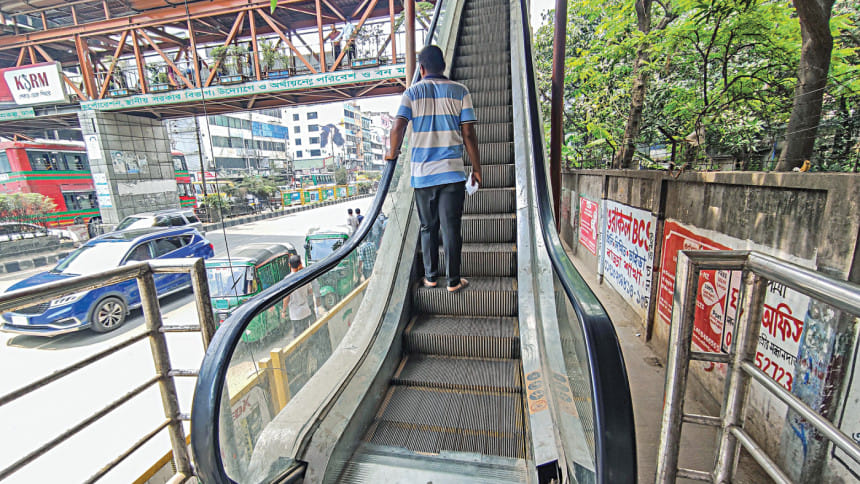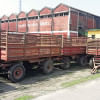Duty hike to destabilise elevator, escalator market

The Bangladesh Elevator Escalators and Lift Importers Association (BEELIA) yesterday demanded the withdrawal of the proposed duty on imports of elevators and escalators in the national budget for fiscal year (FY) 2023-24.
Currently, operators in the domestic elevator and escalator industry face 15.75 per cent duty on imports of such products.
However, a proposal to increase the charge to 25.75 per cent has been included in the draft budget for next fiscal year to promote local manufacturing.
If the government executes the new duty, elevator and escalator prices could rise by as much as 20 per cent at the consumer level, the association said.
With this backdrop, BEELIA urged for lowering the duty to 11 per cent, as was the case in FY 2021-22.
The association also demanded including lifts and escalators in the category of essential machineries rather than commercial products.
BEELIA made these demands at a press briefing, held at the BUET Graduates Club in Banani yesterday.
The lift and escalator industry has been suffering losses for years now due to the Covid-19 pandemic and following global crises, such as persisting inflation and currency devaluation the world over.
"Increasing the duty amid higher US dollar prices will force the industry into a corner," said Emdadur Rahman, president of BEELIA.
"So, such a change will not only hurt the industry, but also victimise existing building owners," he added.
And while it is a good thing that the government intends to protect the domestic industry, such initiatives will only heap pressure onto consumers.
"If the government facilitates development for domestic industries at the cost of imposing an additional burden on import-oriented ones, then it will destabilise the market," Rahman said.
"It will also create an unequal competition that victimises consumers," he added.
At present, Bangladesh needs around 4,000 units of lifts and escalators worth a total of between Tk 2,500 crore and Tk 4,000 crore each year. Of these units, more than 90 per cent come from abroad through roughly 500 local importers, BEELIA data shows.
Rahman went on to say that the government considers people like him as commercial importers when in actuality, they work for the service sector.
"Our work does not end with simply importing the machines as we also take the responsibility of maintenance. As such, the industry has created a huge number of employment opportunities," he said.
Md Shafiul Alam Uzzwal, general secretary of BEELIA, said the import duty was increased 5 per cent for the outgoing fiscal year, when lift and escalator companies faced huge losses amid the Covid-19 fallout.
Besides, the fact that there is no specific policy on the exchange rate for US dollars or euros means that importers are having to open letters of credit at unrestricted prices and 100 per cent margins.
As such, the extra duty in the proposed budget will only deepen the crisis, he added.
Uzzwal then said commercial importers like him pay value-added tax (VAT) on sales while domestic manufactures have been given VAT exemption till 2025.
So, if the government adds 10 per cent duty on imports, then the price of imported lifts and escalators will be some 37 per cent higher than that of locally manufactured units.
This is because domestic manufacturers only pay 1 per cent duty for importing the required parts and machinery while also getting benefits on freight rates.
Therefore, considering their import duty and VAT facilities, domestic manufacturers can sell products at 25 per cent lower prices.
Aktar Jamil Bhuiyan, a vice president of BEELIA, said the government should form a regulatory body in accordance with international standards as local products could lack quality in absence of proper monitoring.
Bangladesh mostly imports lifts and escalators from India, China, Turkey, Spain, Italy and Switzerland, with about 15 lakh workers employed by the sector.

 For all latest news, follow The Daily Star's Google News channel.
For all latest news, follow The Daily Star's Google News channel. 








Comments